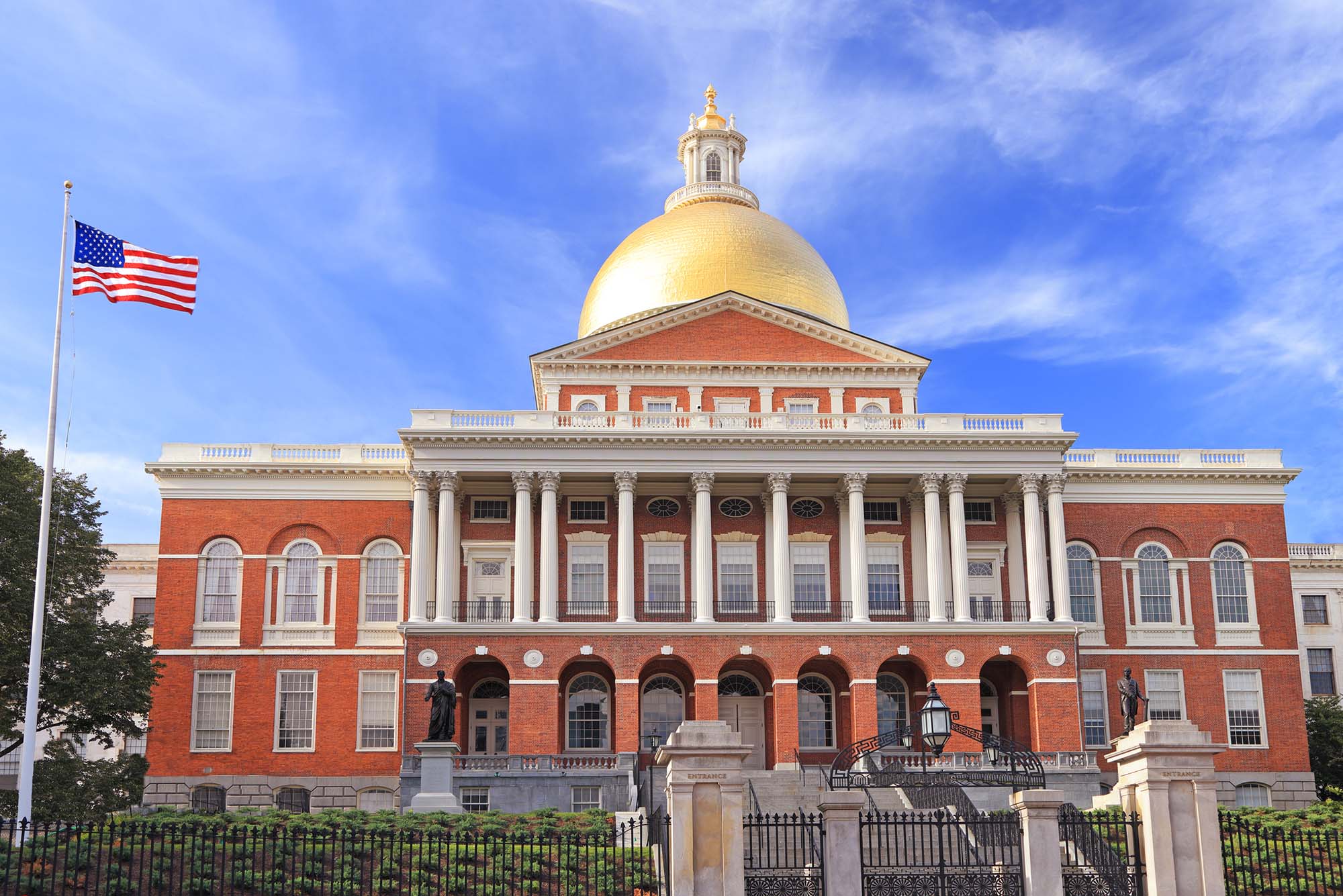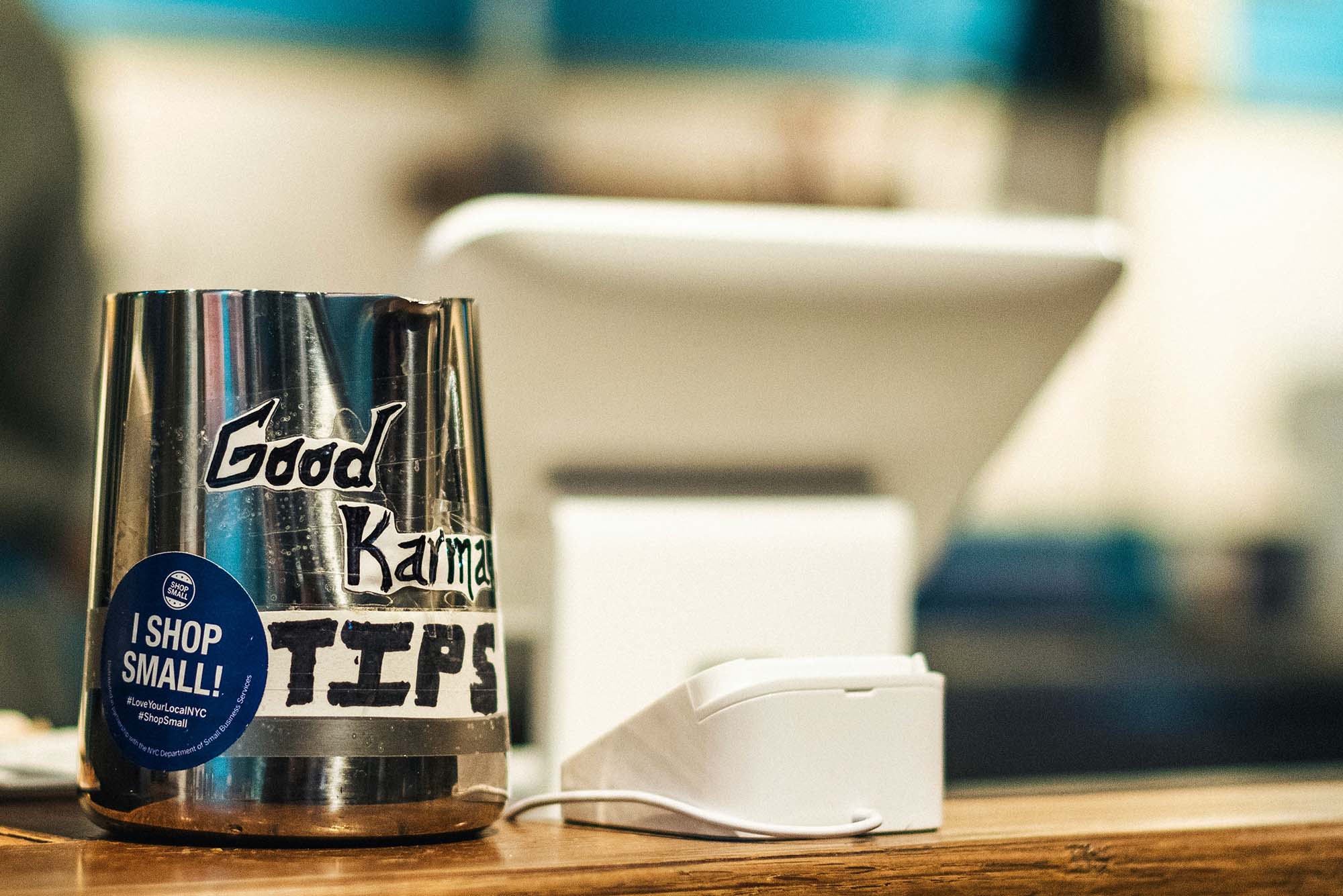Psychedelics, MCAS, Rideshare Unions, and More: What You Need to Know about This Year’s Ballot Questions
Massachusetts voters will decide five measures, pick a president and state leaders

Five ballot questions, covering education, unions, psychedelics, tips, and the legislature, confront Massachusetts voters November 5. Photo via iStock/adamkaz
Psychedelics, MCAS, Rideshare Unions, and More: What You Need to Know about This Year’s Ballot Questions
Massachusetts voters will decide five measures, pick a president and state leaders
This Election Day, Tuesday, November 5, Massachusetts voters will face the largest slate of ballot questions in decades. Voters in the commonwealth will be asked to weigh in on five issues: the use of the MCAS as a graduation requirement, the legalization of psychedelics, unionization for rideshare drivers, minimum wage for tipped workers, and a proposal to empower the state auditor to audit the legislature.
The deadline for registering to vote is October 26, and the vote-by-mail application deadline is October 29. Mailed or dropped-off ballots must reach polling places by 8 pm, the close of polling, on Election Day.
Here’s everything you need to know about the five questions on the Massachusetts ballot this year.
Question 1: Auditing the legislature

Jerry Berger (CAS’73) is a former Massachusetts Senate staffer who has also covered opaque Beacon Hill as a reporter and now directs BU’s Statehouse Program for Terrier journalists. “I understand how the legislature works. It ain’t working now,” says the College of Communication lecturer in journalism, after a frequently do-nothing legislative session.
Yet he’ll vote against Question 1, a proposal to empower the state auditor to audit the legislature, checking whether lawmakers comply with employee training rules, cybersecurity standards, and purchasing practices. Backers say passage would “unveil [the legislature’s] inner workings” and “could signal a new chapter of accountability in Massachusetts politics.”
“I think it’s gross overstepping,” says Berger, citing Attorney General Andrea Campell’s declaration that it is an unconstitutional encroachment by the executive branch, which the auditor is part of, on the separate legislative branch. Besides, he says, “Audits take a year to a year and a half. My experience when I was a Statehouse reporter was that by the time an audit comes out, it is almost irrelevant. Whatever the agency was being cited for doing improperly…had been corrected.” Moreover, he says, the legislature would be free to ignore any audit recommendations.
Riven by personality clashes between the Senate president and the House speaker, Berger says, the legislature’s problem can be fixed by the voters, who can elect new lawmakers.
The Boston Globe, editorializing for passage of Question 1, counters that a decades-old opinion from the attorney general’s office found no constitutional problem with voters changing the law to authorize audits.
A yes vote would authorize legislative audits; a no vote would make no change to the state auditor’s authority.
Question 2: MCAS exam

Joshua Goodman is a scholar of education and economics. But it’s as a former high school math teacher in Watertown, Mass.—and “current parent of three public school students,” he says—that he’ll vote “no” on a ballot question to abolish passage of the MCAS (Massachusetts Comprehensive Assessment System) program as a requirement for a high school diploma.
“I believe keeping the MCAS as a high school graduation requirement makes sense,” says Goodman, an associate professor of education at the Wheelock College of Education & Human Development. “It may, however, be worth lightly modifying the requirement for English learners or students with disabilities.”
Tossing the two-decade-old requirement (students are tested in the 10th grade in math, English language arts, and science, and must pass by the end of their senior year) is the second of five ballot questions confronting Massachusetts voters November 5.
If the “yes” side prevails, students will still take the MCAS for diagnostic purposes, but won’t need to pass to earn a diploma. The Massachusetts Teachers Association (MTA) has made a “yes” vote a priority, arguing that it stigmatizes low-income students of color who don’t pass it and forces teachers to tailor their teaching to the test. If passed, the measure would require students to complete work certified by their individual school districts as meeting state academic standards.
Initially, the union wildly overstated the number of students who flunked the MCAS over the years; in reality, the Boston Globe reports, less than 1 percent of any given class is denied diplomas solely because of the MCAS. Most students who don’t graduate do not meet their local school districts’ individual graduation requirements, either.
MCAS supporters like Goodman, who has a joint appointment at the College of Arts & Sciences, say that the commonwealth boasts some of the nation’s best schools because of decades-old reforms that include the test regimen.
“Holding schools accountable for a clear set of high-quality standards helps clarify teachers’ tasks and likely improves the average quality of instruction,” Goodman says, which is why he’s not troubled by the teaching-to-the-test argument: “Teaching to a high-quality test is good for students’ learning.”
“Test scores measure skills that predict student success in college and the labor market,” he says. “Grades do too, but recent years of grade inflation have made them much less informative than before.” By contrast, students passing the MCAS “make high school degrees more valuable,” clarifying for employers and colleges the skills grads have learned. (Business and nonprofit leaders are campaigning against abolition of the requirement.)
A yes vote would remove the graduation requirement for Massachusetts public school students to pass the 10th grade exam. A no vote would make no change.
Question 3: Unionization for transportation network drivers

Under current law, rideshare drivers—such as those who drive for Uber and Lyft—cannot readily form unions. Question 3 would create a mechanism to change that. Notably, it covers drivers who transport passengers, not gig workers who deliver food or other goods from their own cars. And if it passes, the measure would give rideshare drivers the option to form a union, not require them to join one.
The ballot measure envisions a type of collective bargaining called sector-based bargaining, which allows drivers across multiple companies to negotiate together for better pay, expanded benefits, and other protections that would then apply across the entire rideshare industry.
“Ballot question Number 3 put to Massachusetts voters seems new, but it’s in fact an old story about the balance of power between workers and employers,” says Michel Anteby, a professor of management and organizations at BU’s Questrom School of Business.
Where traditionally labor organizers focused their efforts on select employees and specific locations, sector-based bargaining reflects an approach more suitable to our current economy, one that is more fractured and includes fewer standard employment contracts, says Anteby, who is also a College of Arts & Sciences professor of sociology.
Should the measure pass, Anteby says, “those most likely to benefit are the most precarious workers, namely those in the weakest positions to negotiate with hiring companies. Companies are quick to offer symbolic rewards to their workers—like what my coauthors and I documented when Instacart started calling its workers ‘heroes’ during the COVID-19 pandemic. But creating and designing good jobs that entail living wages, sick leave, health benefits, and more requires much more negotiation and commitment from employers.”
The most ardent arguments against this ballot measure, including that by the nonprofit Massachusetts Fiscal Alliance, boil down to a concern that securing higher pay for drivers would mean raising prices for riders. Anteby isn’t so sure this is a fiscal necessity for the rideshare platforms in question, though.
“This could translate into less profits for the companies and/or higher costs to travelers. Note that Uber recently posted more than $1 billion in profits, which suggests that passing on potential higher costs to travelers would be a strategic choice on the company’s part, not a necessity,” he says.
“The real question is about the ideal balance of power between workers and employers. It’s about what we deem right as a society. And ballot question 3 asks voters to weigh in on that critical issue.”
A yes vote would provide rideshare drivers the option to form unions to collectively bargain with rideshare platforms such as Uber and Lyft. A no vote would leave current law in place.
Question 4: Psychedelic drugs

Question 4 asks voters to consider legalizing certain plant-based psychedelic drugs in the commonwealth. The ballot measure would allow people 21 and over to grow, possess, and use two substances found in mushrooms (psilocybin and psilocyn) and three found in plants (dimethyltryptamine, or DMT; mescaline, also known as peyote; and ibogaine). If it passes on Election Day, the measure would take effect shortly thereafter, on December 15, 2024.
Researchers have found that each of these five substances can complement existing therapeutic practices for treating conditions that include depression and anxiety, addiction, PTSD, and other mood and behavioral disorders. Additionally, they’ve been used by indigenous communities around the world in spiritual and folk healing rituals for millennia, as a number of research publications note, including the Journal of Psychedelic Studies.
“I think we can all agree there’s a mental health crisis right now—the rates of depression, anxiety, and PTSD are just incredibly high. People are really struggling, and the available treatments don’t work for everybody. We need some new tools,” says Karen Brouhard, a licensed clinical social worker and director of BU’s Faculty & Staff Assistance Office.
Voters in Colorado and Oregon have passed similar measures (with notable differences) in recent years. They’ve been met with mixed, but largely positive, results. And thus far, the legalization efforts in these states haven’t triggered any federal response, but that remains a risk for every state seeking to legalize psychedelics, because the drugs at issue are considered illegal at the federal level, with limited exceptions for scientific research.
If this sounds like the recent Massachusetts embrace of marijuana, there is one major difference: there’s no clause for recreational retail. These substances could be purchased only at an approved location for therapeutic use under the supervision of a licensed facilitator.
However, they could be grown and used at home. The measure would allow people 21 and older to grow these plants in a 12-foot-by-12-foot area. People 21 and older could possess up to a gram each of psilocybin, psilocyn, and DMT, as well as 18 grams of mescaline and 30 grams of ibogaine.
This ballot measure, if passed, would create a Natural Psychedelic Substances Commission to oversee the laws regarding use and distribution. It would also allow cities and towns in Massachusetts to “reasonably restrict” the time, place, and manner of therapeutic facilities offering psychedelic substances—but they couldn’t ban them outright.
Arguments for the measure largely focus on the potentially life-saving therapeutic opportunities involving psychedelics, particularly among people whose conditions don’t respond to traditional prescription drugs and talk therapy.
“In addition to the research into the therapeutic uses of psychedelic treatments, which is compelling, I have talked with individuals who’ve been fortunate enough to access these hard-to-access psychedelic treatments—people who’ve said it saved their lives,” Brouhard says.
Arguments against it, meanwhile, raise concerns about the potential for an underground black market and a rise in DUI-related injuries and fatalities.
A yes vote would legalize certain psychedelics; a no vote would maintain the status quo.
Question 5: Tips

Passage of Question 5 would require restaurants to phase in, for tipped workers, the state’s $15 hourly minimum wage, replacing their current subminimum of $6.75 an hour. It also would allow tip-pooling among all of a restaurant’s workers, including those who don’t receive tips. State law allows tips for any “wait staff employee, service employee, or service bartender”; by law, those workers are supposed to net $15, with their employers making up any difference if workers’ subminimum and tips don’t add up to that.
Many employers don’t follow the law, say advocates of abolishing the subminimum. They argue that the proposal would create predictable pay and greater pay equality for workers. The Massachusetts Restaurant Association counters that restaurants have meager profit margins and cannot afford the proposal.
Sean Jung, an assistant professor of hospitality analytics at the School of Hospitality Administration, opposes the proposal. The former busboy, waiter, cook, restaurant manager, and food cart co-owner on Wall Street says that “we’re moving too quickly without adequately considering and educating the public about the potential negative consequences that have surfaced in other states that have adopted similar measures.
“Restaurant tip workers in places like Maine and New York City have expressed strong opposition to abolishing the subminimum wage, fearing it could lead to lower overall income due to reduced tipping. Restaurant owners will also face increased wage expenses, which, as we’ve seen elsewhere, often get passed on to consumers in the form of ‘service charges.’” And restaurants, Jung says, “are still struggling with inflated ingredient costs, making this a particularly challenging time for the industry,” possibly spurring more fast-casual dining, robotic tray servers, and other labor-unintensive moves.
Yet a University of Massachusetts study found tipped workers in states without a subminimum wage outearn peers in states like Massachusetts, while the added costs to restaurants amount to roughly a “modest” 2 percent.
A yes vote would phase in the new wage rules for tipped workers. A no vote would retain the current law governing tip pooling and the minimum wage.
Comments & Discussion
Boston University moderates comments to facilitate an informed, substantive, civil conversation. Abusive, profane, self-promotional, misleading, incoherent or off-topic comments will be rejected. Moderators are staffed during regular business hours (EST) and can only accept comments written in English. Statistics or facts must include a citation or a link to the citation.